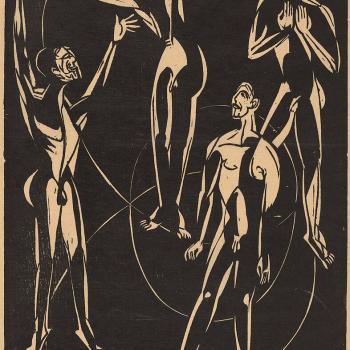
About a week ago I chose to take a temporary break from social media, mostly because my life has become too busy to deal with it all—discussions, arguments, opinions, you name it. Emotionally and temporally, there’s simply too much to do and feel (feel even to the point of numbness) in the digital world.
We are human; we too often let our emotions drive us, and more often than not, that makes for a tumultuous online experience, especially when one is responsible for keeping a blog, “defending” the faith, and all manner of other digital obligations.
And, man, am I glad I went on hiatus. Just popping onto Facebook to manage my posts after the most recent tragedy has exposed me to all the partisanship, vitriol, self-service masked as altruism, and all manner of other stressing positions and emotions that I had hoped to forget.
It’s maddening, and that goes both for those with whom I agree and those with whom I disagree. It’s not the politics per se, nor is it the passion—it’s the fact that social media has given each of us a platform, whence we believe ourselves to be gods, individuals enlightened, those who, like Hegel, can synthesize everything with a couple of internet searches. What is not at our fingertips?
I know because I am as guilty of this as anyone else with access to a laptop. The anonymity, the soap box, the dozens of friends with shared opinions vying with the one or two who mildly disagree—it’s intoxicating, but also deeply painful, a way of living vicariously and proudly in an already atomistic and prideful world. It turns even the meek and kind in personal interaction into geniuses with a passion for argumentation, who, ironically enough, find themselves more isolated than ever: just ask an MIT professor, one from Cornell, or your local mental health counselor.
It just might not be you (or me!) alone who has the entirety of the answer.
Frankly, if I were not a blogger with a responsibility to keep writing, I might take a longer, fuller break from any sort of computerized connectivity (aside from, perhaps, e-mail). But why say any of this anyway? Isn’t all of this merely complaining from a privileged graduate student who doesn’t understand “the real world?” Isn’t it all just fun?
Perhaps. But something bigger is at play. I beseech you, dear readers, to act with humility in times of tragedy. Everyone wants to act; everyone is an expert (I’ve even pretended to such a position many times), but sometimes prayer, donations, and the warmth of charity and kindness are all we can offer—better said, sometimes these are the best things we can offer. There is a time for silence, and social media too often allows us to forget that, allows us to elide stillness. Consider these Bible verses:
Where words are many, sin is not wanting;
but those who restrain their lips do well.
Choice silver is the tongue of the just;
the heart of the wicked is of little worth.
The lips of the just nourish many,
but fools die for want of sense. (Proverbs 10:19-21)Better a dry crust with quiet
than a house full of feasting with strife […]
Fine words ill fit a fool;
how much more lying lips, a noble […]
Those who spare their words are truly knowledgeable,
and those who are discreet are intelligent.
Even fools, keeping silent, are considered wise;
if they keep their lips closed, intelligent. (Proverbs 17:1, 7, 27-28)There is an appointed time for everything,
and a time for every affair under the heavens […]
A time to kill, and a time to heal;
a time to tear down, and a time to build.
A time to weep, and a time to laugh;
a time to mourn, and a time to dance.
A time to rend, and a time to sew;
a time to be silent, and a time to speak. (Ecclesiastes 3:1, 3-4, 7)
In other words, no—I am not saying there is no time for outrage, indignation, sadness, grief, or whatever else; I am merely suggesting, even begging, people to remember themselves, to remember humility in times of terror in an age rife with the means for self-glorification and self-importance. I admit that writing this is, at best, a long shot, itself an ironic way of venting feelings, but if even one person turns his or her spiritual face away from immediate indignation and toward the quiet stillness of holy silence before speaking, I will be happy.
Please remember that none of has the answer, not singularly—and that each of us has a better place to be than outraged on the internet.
God bless, my friends—and remember that for all the evil in the world, for all the clamor, gongs, banging, and ringing, we are blessed with the possibility of reflection, with the gift of a searching silence before springing into action.













